|
C.b. Finite differential equations of the 1D model, Simulation setup and results
|
Space differencing is evaluated by the second-order centered
scheme. Time integration is performed by the forward scheme for the
radiative heating term and the Crank-Nicolson scheme for the diffusion
term. Detailed descriptions for the finite difference form of the
radiative transfer equation and the vertical diffusion term are the
same as those stated in Appendices B.d and
B.e..
The arrangement of the vertical grid and its interval are the same as
those of the 2D model (Section 2.b).
The time step is 30 sec. The
solar flux at the top of the model atmosphere diurnally changes under
the condition of Ls = 100° at 20°N. The initial atmospheric and
ground surface temperature is constant (220 K and 210 K,
respectively). The numerical integration time is 30 days.
Vertical profiles of atmospheric temperature and ground temperature at
6:00 LT are shown in Figure C1
and Figure C2, respectively. These profiles
are used for the initial conditions of the 2D model simulation
(Section 2.b). Even if the initial
atmospheric temperature is 160 K, the results are similar to that
obtained in the case with an initial atmospheric temperature of 220 K
(Figure C3, Figure C4).
The diurnal changes of atmospheric temperature and ground temperature
at day 30 are shown in Figure C5
and Figure C6, respectively.
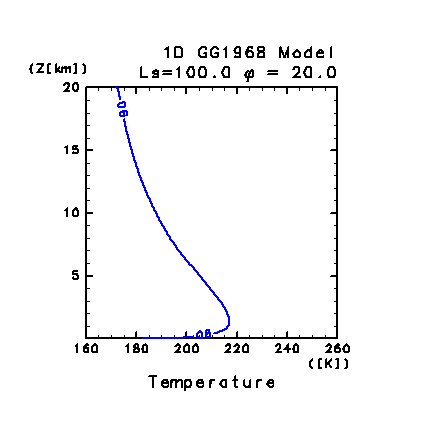
|
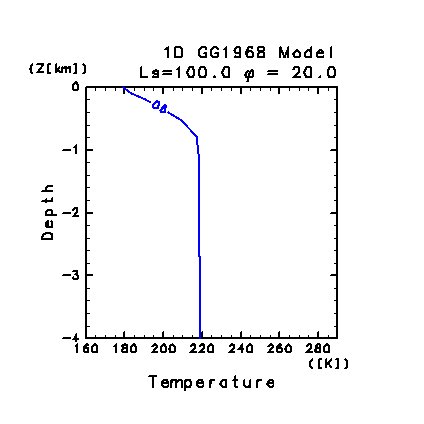
|
|
Figure C1: Vertical profile of atmospheric temperature at 6:00 LT on day 30; calculated by the 1D model.
|
Figure C2:
Vertical profile of ground temperature at 6:00 LT on day 30; calculated by the 1D model. The vertical axis is diurnal skin depth.
|
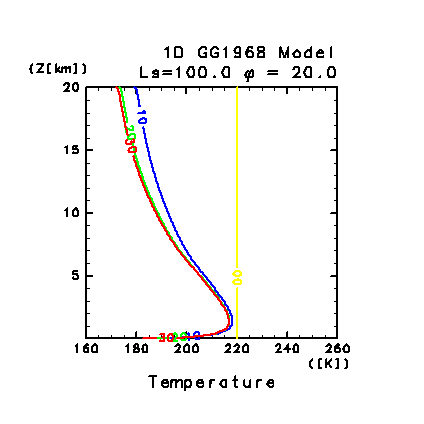
|
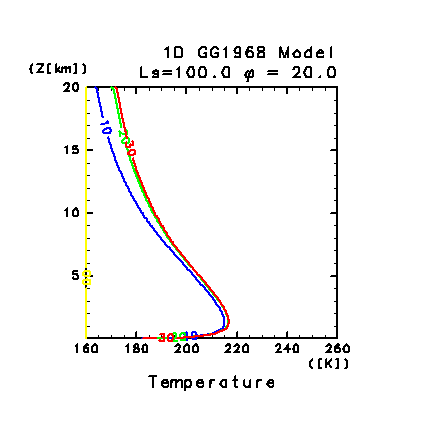
|
|
Figure C3:
Vertical profiles of atmospheric temperature at 6:00 LT for every 10
days; calculated by the 1D model. Initial atmospheric temperature is
220 K. The number on each line indicates calculation day.
|
Figure C4:
Vertical profiles of atmospheric temperature at 6:00 LT for every 10
days; calculated by the 1D model. Initial atmospheric temperature is
160 K. The number on each line indicates calculation day.
|
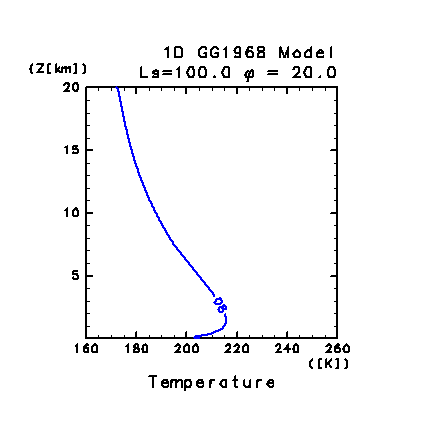
|
|
Figure C5:
Vertical profiles of atmospheric temperature every 4 hours on day 30;
calculated by the 1D model. The number on each line indicates local
time.
|
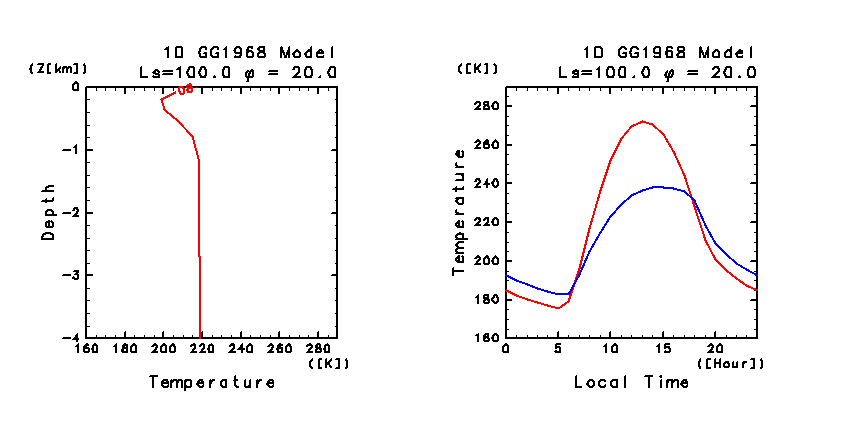
|
|
Figure C6:
(left panel) Vertical profiles of ground temperature from 8:00 to 4:00
LT, every 4 hours, for day 30. The number on each line indicates local
time. The vertical axis is diurnal skin depth. (right panel) Time
series of horizontal mean surface temperature (red line) and
atmospheric temperature (blue line) at at height of approximately 1.5
m.
|
|